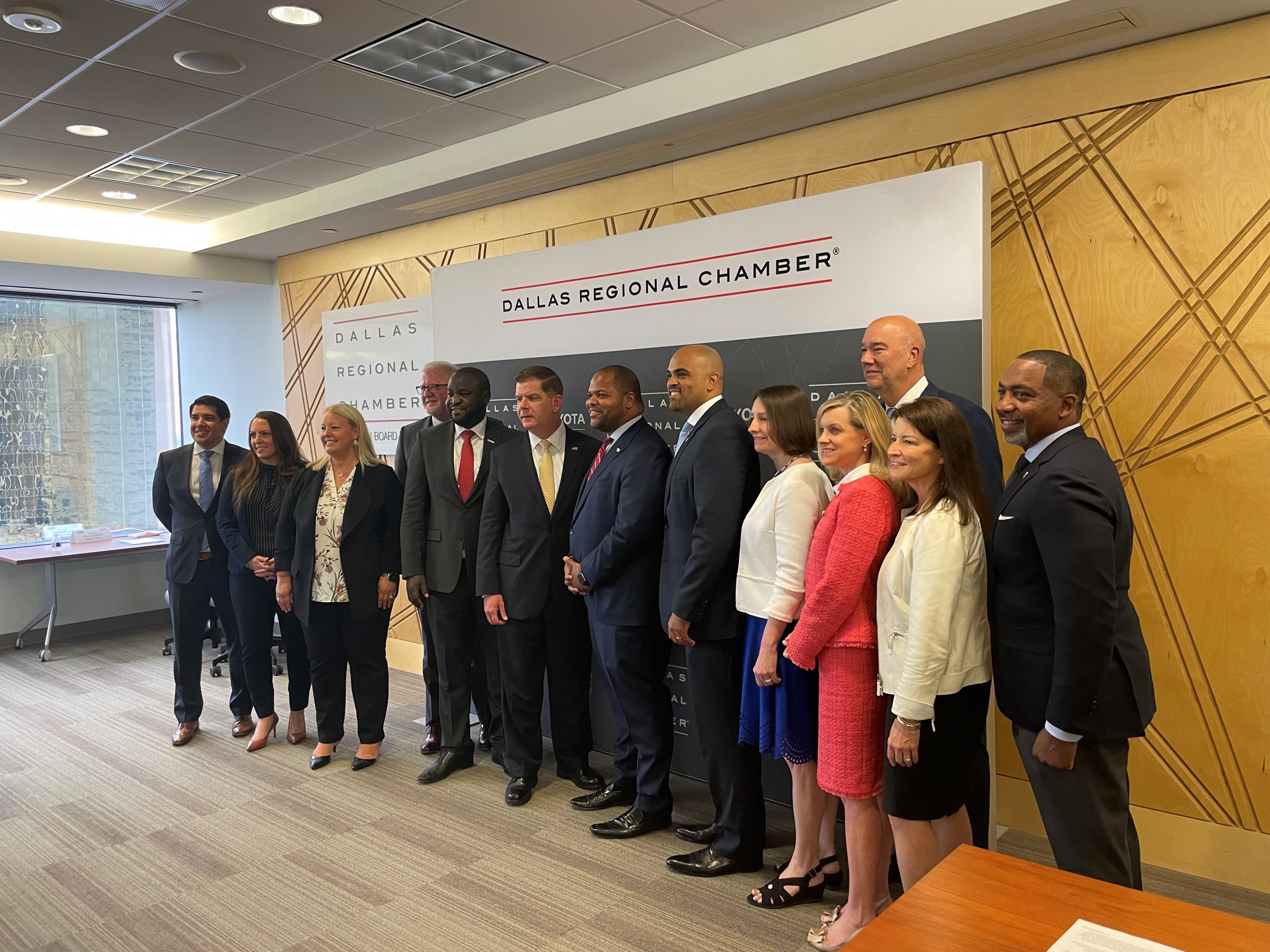Family-friendly policies are becoming as important to employees as any other benefit offered by a company, and the COVID-19 pandemic only seemed to increase the challenges of achieving that work-life balance.
In a dynamic roundtable discussion on June 10, the Dallas Regional Chamber (DRC) hosted U.S. Labor Secretary Marty Walsh, U.S. Congressman Colin Allred (TX-32), Dallas Mayor Eric Johnson, and representatives from several Dallas Region companies to talk out these issues.

DRC members taking part in the discussion included Amber Scanlan, Senior Vice President/Director of Client and Community Relations for PNC Bank; Charlie Bogart, Founder and CEO of Realcom Solutions; Jennifer Chandler, Dallas Market President of Bank of America; Kate Clifford, North America HR Delivery Managing Director of Accenture; Scott Orr, Vice President of Government Relations and Public Affairs for Fidelity Investments; Frederick Scott, Americas Consulting Diversity and Inclusiveness Leader for Ernst & Young LLP (EY); and Tori Mannes, CEO and President of ChildCareGroup.
These organizations represent part of the first group of Dallas Region employers designated a Best Place for Working Parents™, with family-friendly policies like paid parental leave, flexible working conditions, and childcare assistance.
In January, with the help of PNC, the DRC launched the Best Place for Working Parents™ Dallas initiative, which recognizes family-friendly workplaces in the region. The initiative uses a first-of-its-kind self-assessment to allow employers to quickly determine whether their company qualifies as a Best Place for Working Parents™.
As a part of his North Texas visit to raise support for President Biden’s American Families Plan, the Secretary spoke about the importance of paid family leave: today, there are 1.8 million fewer women in the labor force across the U.S. than in February 2020.
Secretary Walsh said, “My question to companies – and not necessarily your companies – is, what do you think the challenges are of paid leave, if any?”
Kate Clifford (Accenture) answered with this: reentry.
“The leave is not as much a challenge as coming back post leave. The fear of, ‘Will I have a role as important as it was before, will I have a job with the same level of responsibility’?” Clifford said.
One benefit Accenture offered pre-pandemic, Clifford explained, was the ability to work local for one year after having a child.
“Many of our employees were travelling all the time, and [we would] offer a guarantee that when you came back, man or woman, we would guarantee you could work local for a year upon your return. Just to give our people who were coming back some level of comfort – some level of stability about what they were coming back to,” Clifford said.
Congressman Allred, who with his wife welcomed their second child in March, explained that he took parental leave to set the example for others in his office. The Congressman has spoken out on the importance of passing a national paid leave policy.
“We have a 100 percent chance at some point in normal life – you’re going to need time off from work. Whether it is welcoming a child – or like so many of us have experienced in this pandemic – a loved one being sick, or a crisis that hits that you need to help your family with. What we are trying to do, I think, in the American Jobs Plan, is just recognize reality,” Congressman Allred said.
Frederick Scott (EY) emphasized the importance of mental health benefits for working parents. Scott said EY offers employees an expanded number of sessions with licensed counselors to talk about challenges at home.
“You think about not just leave – but how you can be a whole parent. We have this thing where we talk about being able to bring your whole self to work. That requires a fair amount of care and nurturing. Mental wellbeing is just as important,” Scott said.
Take the Best Place for Working Parents™ business self-assessment. Designees will receive a digital badge to tout their organization via web, social media, and print as a Best Place for Working Parents™.